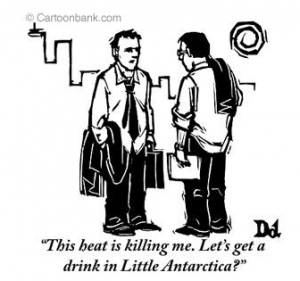In this session, we learned of both local (Middlebury) and global (Bangladesh and NE Brazil) health and sustainability projects.
Abul Hussam, Center for Clear Water and Sustainability Technologies, Dept of Chemistry and Biochemistry, George Mason University.
Dr. Hussam’s project originated because his family has been drinking water laced with arsenic, a huge problem in Bangladesh. His talk emphasized sustainable technologies (SONO arsenic filter) and the social implications, though he dealt less with this aspect.
He highlighted 3 UN Millennium Goals that his project is tackling:
- MG1: eradication of extreme poverty and hunger
- MG7: ensuring environmental sustainability (water <>sanitation<>hygiene)
- MG8: develop a global partnership for development
Water is interconnected with sanitation and hygiene — the problem of sanitation has to be solved simultaneously. In Bangladesh, people get their water from 5 sources:
- surface water, the most popular and dangerous
- groundwater (tube- wells) — where we find a lot of arsenic
- deep tube wells
- dug wells
- rainwater harvesting (very difficult to do because if it sits it develops bacteria and other organic “things” and it has to be filtered quickly, which is difficult and expensive)
People who drink water with arsenic for long periods develop Arsenicosis, which can look like this. Thus, from arsenicosis multiple problems arise: marginalization, lack of opportunity, and the labeling “poor.” Arsenicosis is a disease of poverty.
So Dr. Hussam and colleagues developed the Sono arsenic filtration system. They’ve been able to get this filter to thousands, but new technologies have to be developed and the commercial segment has to enter into the picture thus lowering costs. It took 2 years to get people to buy into the filters because once the water is cleaned it tastes different and people were used to drinking their polluted water and saw this as the “right” water.
Maria Carmen Lemos, School of Natural Resources and Environment, University of Michigan
Professor Lemos’ work concerns how people use information, particularly climate change, to make informed decisions about development. She said that all issues of development are linked to — or have to be linked to climate change since it affects everything we do. The affects of climate are not distributed evenly. For instance, those who have affect climate change the most, will be least affected by these changes; those that have affected climate change the least, the poor,for instance, will be most affected.
She gave us a vulnerability function, which makes a lot of sense: Vf(E,S, AC) = Vulnerability is a function of exposure, sensitivity and adaptive capacity.
The rest of her talk focused on Adaptive Capacity:
- the ability of a system to adjust to climate change, to moderate potential damages, to take advantage of opportunities, or to cope w/ consequences
- set of resources, and the ability to employ these resources, that are prerequisites to adaptation
Thus, Adaptive Capacity is a positive (+). But we’ve lived with the notion that more is better — more knowledge, more spaces, more of everything is better (sounds like McKibben, here, in our reading/syllabus). More, says the professor, has failed so we have to change this idea.
How do we reframe adaptive capacity in climate change since the following characteristics [of adaptive capacity] make it difficult? :
- latent nature
- dynamic
- lack of baseline date
- difficult to measure
- what scale?
- there are many unknowns (such as how do we measure social capital?)
She advocates a 2 tier approach: Generic (income, education, health, safety, political access) and Specific (drought response, disaster relief, climate information)
You have to build adaptive capacity before the disaster, before the risk becomes manifest.
Dr. Brian Saltzman, Dentist, Middlebury, Vermont, Open Door Clinic, Addison County
Most prevalent childhood disease in childhood is dental decay. Dr. Saltzman is therefore tackling this issue through his Open Door Clinic and through education, focusing on the marginalized, particularly the migrant worker.
He spoke about “Dental IQ,” which is the knowledge of diets and foods, which really comes into play with socio-economics.
Dr. Saltsman sees EDUCATION as the primary problem and the solution — we need more people and more bodies to help in this.
